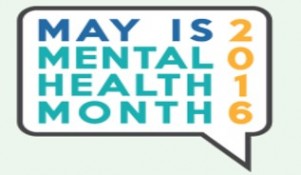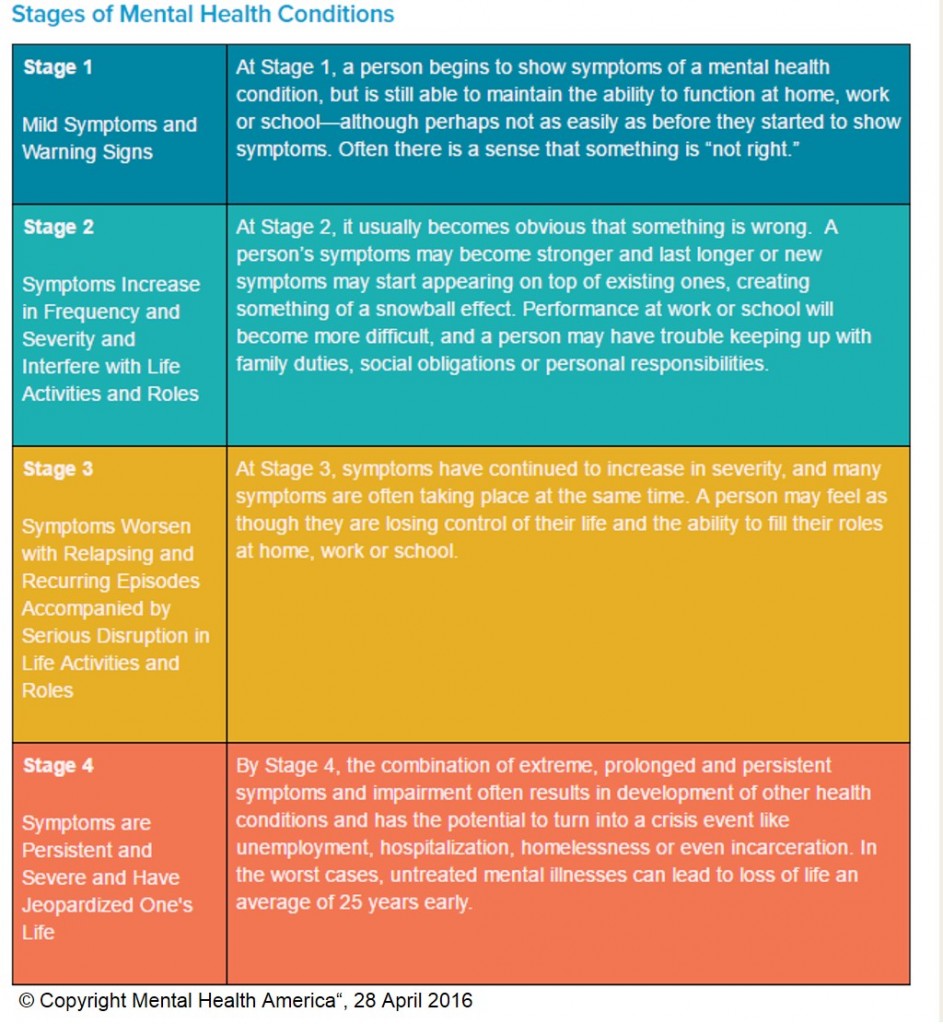 Each year, more than 40 million Americans experience mental illness, and 50 percent of Americans will meet the criteria for a diagnosable mental health condition sometime in their life (with half of those people developing conditions by the age of 14)*.
Each year, more than 40 million Americans experience mental illness, and 50 percent of Americans will meet the criteria for a diagnosable mental health condition sometime in their life (with half of those people developing conditions by the age of 14)*.
Recognizing the early signs of mental health conditions and taking action — is a critical step toward effective treatment that can help people live life to the fullest. According to work by Mental Health America, “mental health conditions should be treated long before they reach the most critical points in the disease process.” Their “B4Stage4” program outlines the stages of mental health conditions, and impresses the importance of intervention before a person reaches stage 4.

For more information about what you should know and what you can do at each stage, visit www.mentalhealthamerica.net/may.
For many, knowing where to turn for support and treatment is the most challenging step. The Catalogue for Philanthropy is proud to feature a number of local charities that focus solely on supporting the mental health of individuals in our community through counseling and outreach services:
Aspire Counseling (Gaithersburg, MD)
Meets the mental health needs of Montgomery County residents.
 Ascensions Community Services, Inc. (Washington, DC)
Ascensions Community Services, Inc. (Washington, DC)
Provides families in Wards 7 and 8 with individualized mental health assistance.
 Wendt Center for Loss and Healing (Washington, DC)
Wendt Center for Loss and Healing (Washington, DC)
Offers counseling, support, and crisis response for those of all ages affected by trauma and loss. (Volunteer opportunities also available here).

The Women’s Center (Vienna, VA)
Makes mental health counseling accessible to all. (Volunteer opportunities also available here).
In addition to the organizations listed above, more than 40 health and wellness organizations listed in the Catalogue for Philanthropy also have mental health offerings as part of their programming.
We encourage you to learn more not only about these organizations, but also about the warning signs and symptoms of mental health problems. Through awareness and education we can remove the stigma of mental health problems, connect those in need with the right resources, and be a source of support in their treatment.
*Source: 2 Ronald C. Kessler et al., Lifetime Prevalence and Age-of-Onset Distributions of DSM-IV Disorders in the National Comorbidity Survey Replication, 62 Arch. Gen. Psychiatry 593, 595 (2005).

